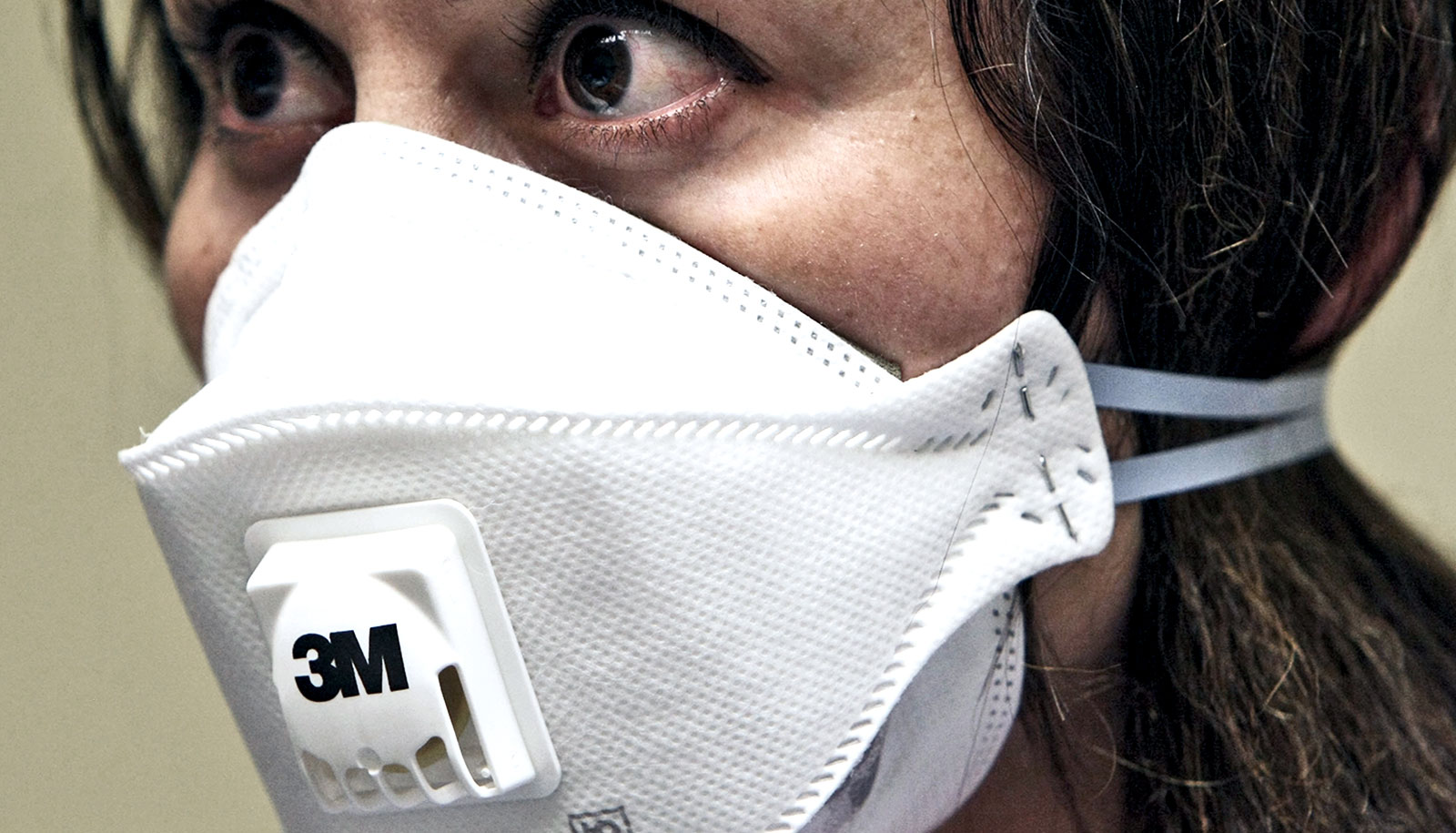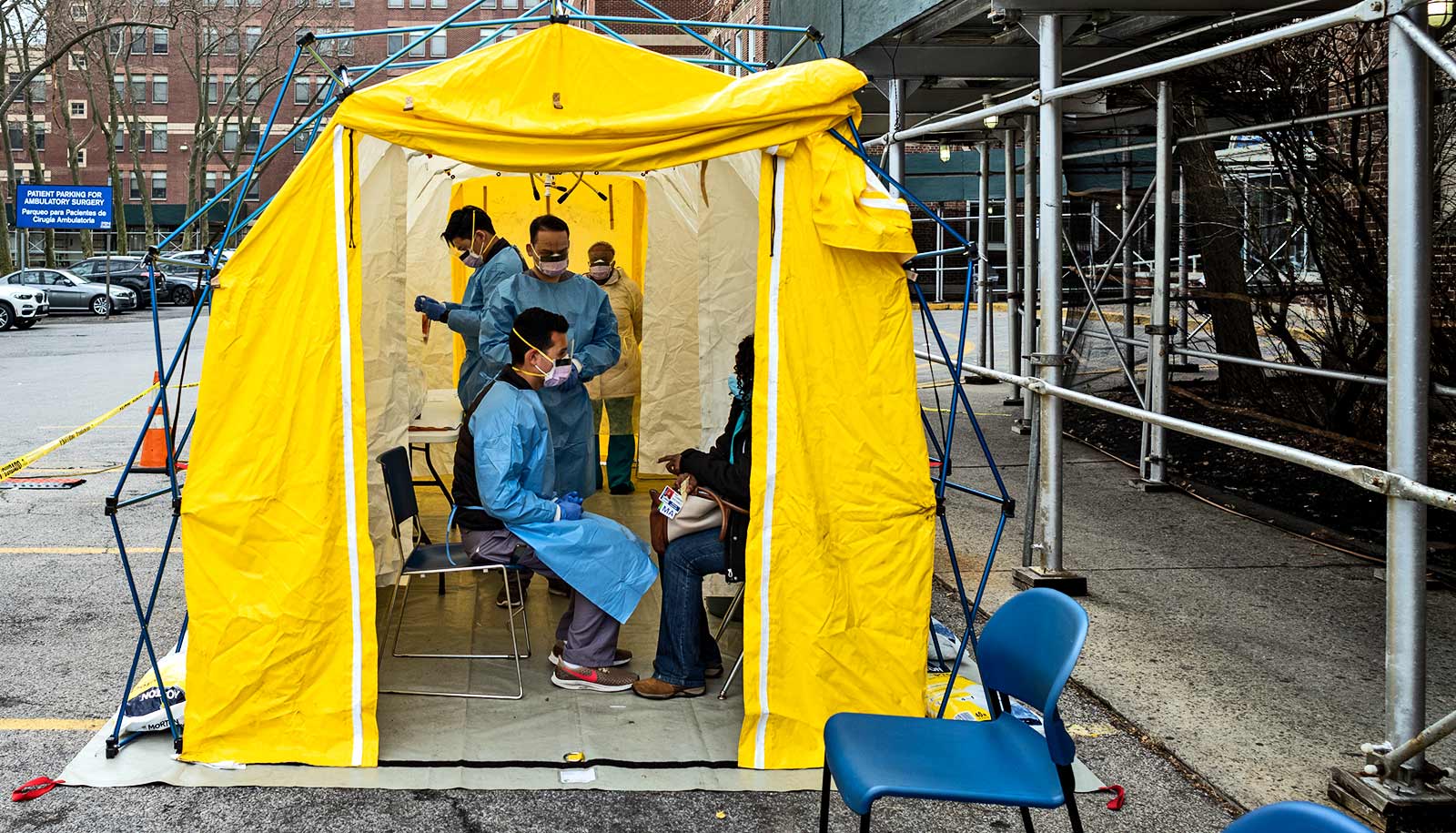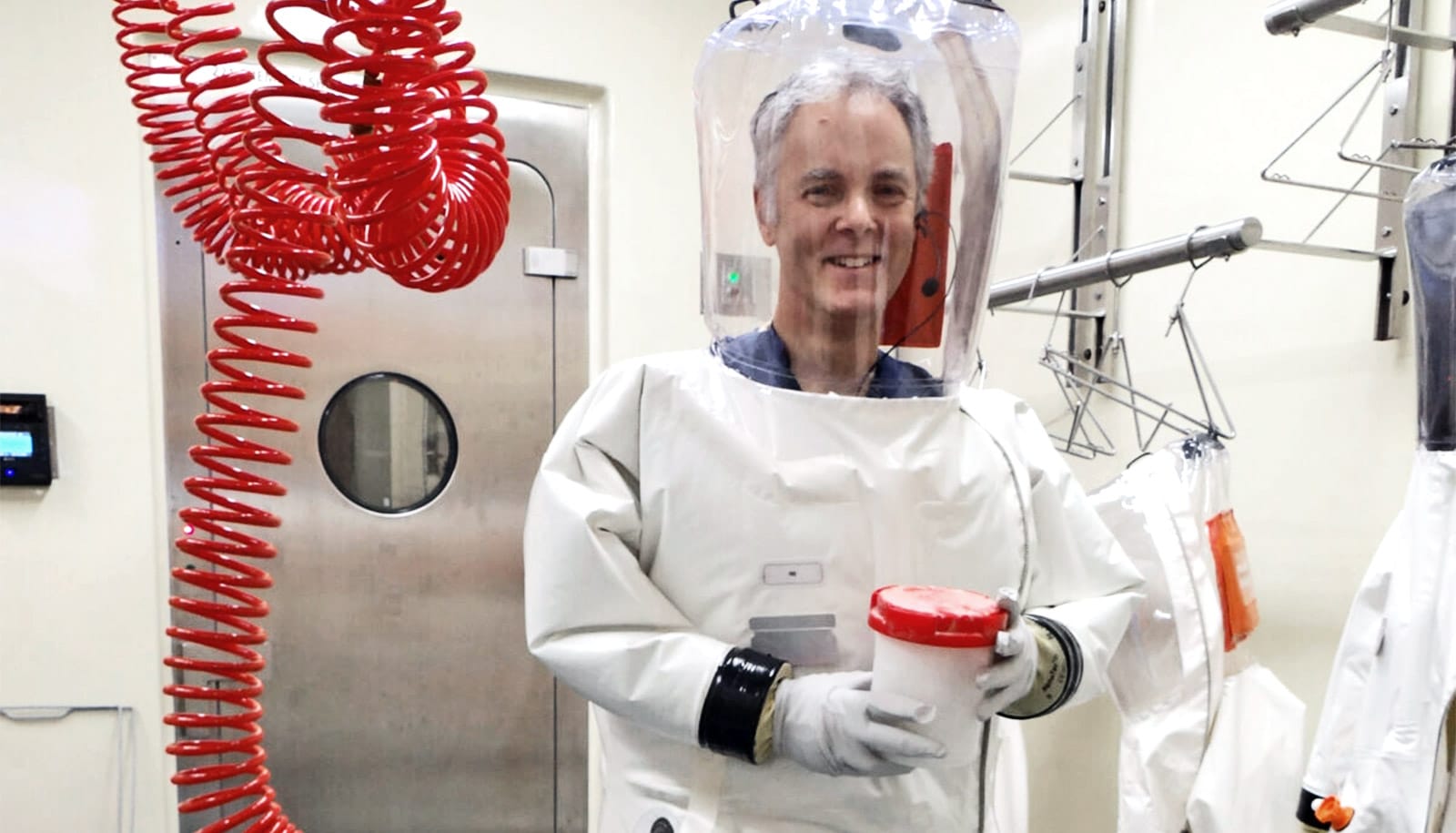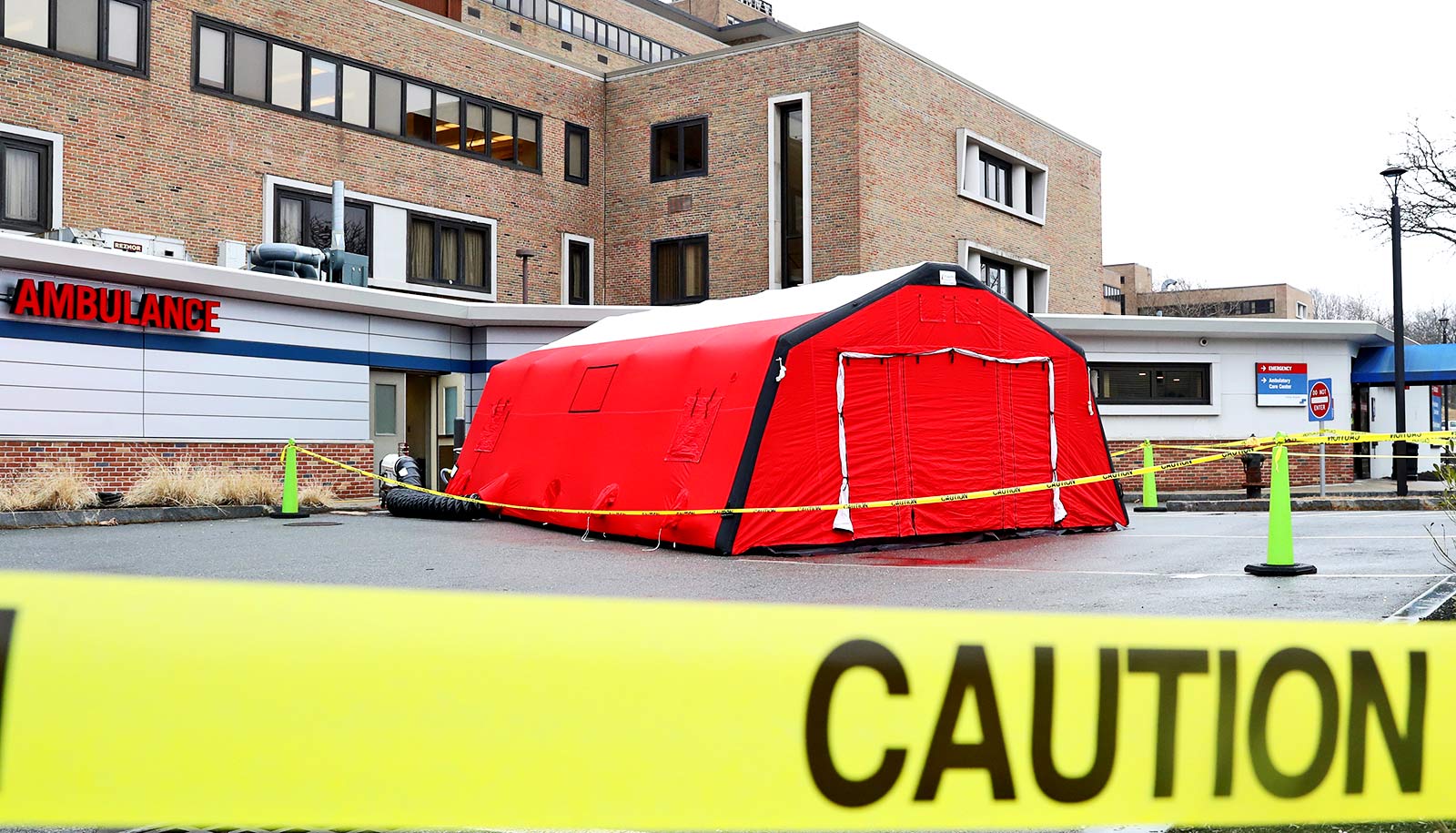Existing vaporized hydrogen peroxide methods can decontaminate N95 face masks for reuse, confirm research and clinical teams.
Health care providers are facing a critical shortage of N95 face masks that block the coronavirus.
The process uses specialized equipment to aerosolize hydrogen peroxide, which permeates the layers of the mask to kill germs, including viruses, without degrading the mask’s material.
“This is a decontamination technology and method we’ve used for years in our biocontainment laboratory,” says Scott Alderman, associate director of the Duke University Regional Biocontainment Laboratory.
“The ability to reuse the crucial N95 masks will boost the hospitals’ ability to protect frontline health care workers during this time of critical shortages…”
“We had never considered needing it for something like face masks. But we’ve now proven that it works and will begin using the technology immediately in all three Duke Health hospitals,” says Matthew Stiegel, director of the Occupational and Environmental Safety Office.
The decontamination process should keep a significant number of N95 face masks in use at Duke University Hospital as well as Duke Regional and Duke Raleigh hospitals, easing some of the shortage and curbing the need for other alternatives using unproven decontamination techniques.
Others tested and published the use of hydrogen peroxide to decontaminate N95 face masks in 2016, but that did not result in widespread adaptation. The earlier studies did not include fit testing after cleaning—basically sizing the masks for individual wearers—to prove efficacy in the real world, which has now taken place.
The decontamination process requires specialized equipment that aerosolizes the hydrogen peroxide, and a closed facility where the masks can be exposed to the vapor. No toxic byproducts result because hydrogen peroxide breaks down to water.
“The ability to reuse the crucial N95 masks will boost the hospitals’ ability to protect frontline health care workers during this time of critical shortages of N95 masks,” says Cameron Wolfe, associate professor of medicine and infectious disease specialist.
Monte Brown, vice president at Duke University Health System, says the team is working to spread the word about the technique, making the protocols widely available. He says several health systems and many pharmaceutical companies already have the needed equipment, which is currently used in different ways, and could ramp up operations to come to the aid of their local hospitals.
“We could stand up in front of our staff and state with confidence that we are using a proven decontamination method,” Brown says. “It has been a proven method for years. While this alone will not solve the problem, if we and others can reuse masks even once or twice, that would be a huge benefit given the current shortages.”
Source: Duke University



